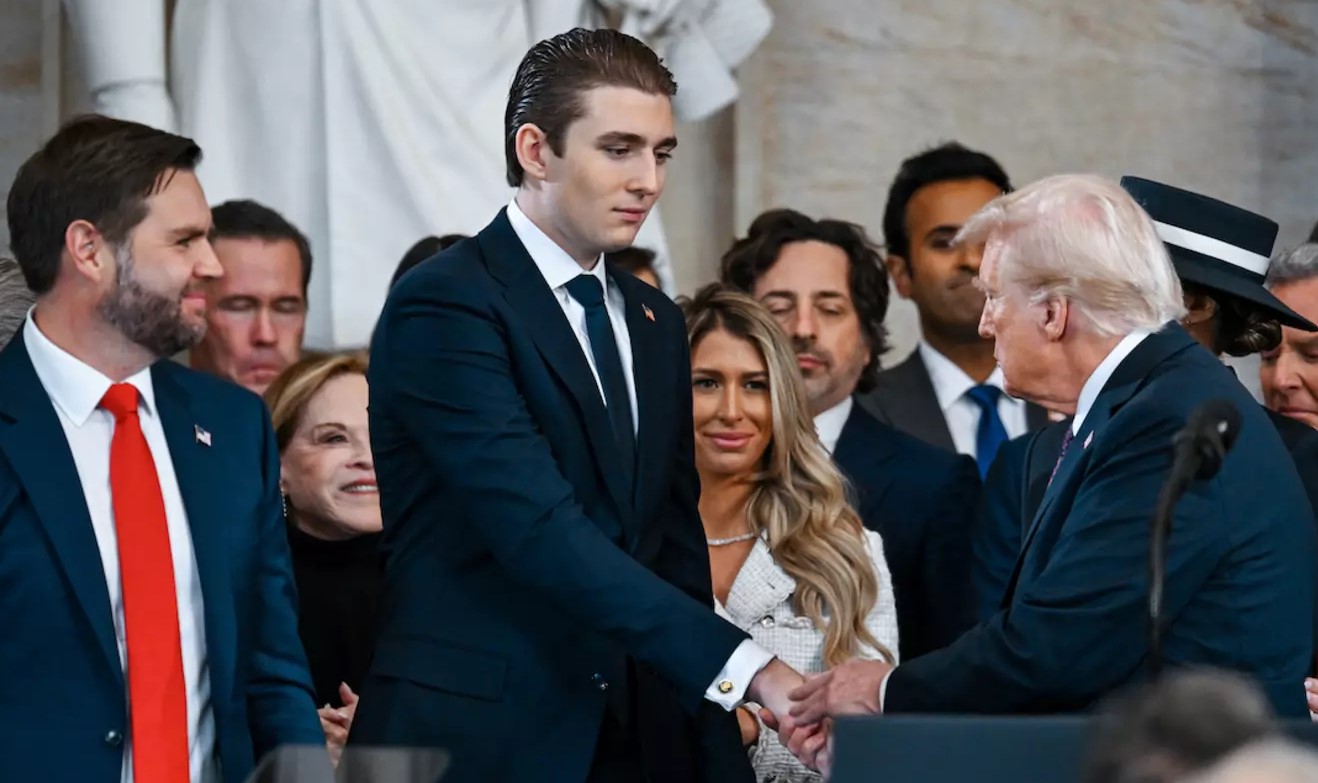In a story that has captivated both the political and academic worlds, Kaya Walker, the former president of the NYU College Republicans chapter, has broken her silence following her resignation. Walker stepped down after making controversial remarks about Barron Trump, the youngest son of former President Donald Trump. Her comments, which many found to be inappropriate, quickly sparked backlash, leading to widespread discussions about free speech, political discourse, and the line between public and private figures.
The controversy unfolded in the wake of Barron Trump’s recent decision to attend New York University’s Stern School of Business. As the son of one of the most polarizing figures in modern American politics, Barron’s presence on campus has been the subject of much speculation and debate. Walker, in a discussion on social media, reportedly made remarks about Barron Trump that some interpreted as demeaning or intrusive, though the exact nature of her statements remains contested.
Facing immediate criticism from students, faculty, and political figures alike, Walker initially defended her remarks, arguing that public figures—especially those connected to high-profile political families—are subject to scrutiny. However, as the backlash grew, pressure mounted from both university officials and members of the NYU College Republicans, leading Walker to step down from her leadership role.
In a statement following her resignation, Walker acknowledged the controversy but maintained that her intention was not to target Barron Trump personally. “I regret that my words were perceived as inappropriate, and I never intended to cause harm or disrespect,” she said. “As students and political activists, we often engage in tough conversations, but I recognize that I could have approached this issue with more sensitivity.”
The situation has reignited debates about the boundaries of political discourse, particularly when it involves the children of public figures. While some argue that Barron Trump, now a college student, is fair game for public discussion, others insist that children of politicians—especially those who have largely remained outside of the public eye—should be off-limits. This has been a long-standing debate in American politics, with figures from both major parties condemning the targeting of politicians’ children, regardless of political affiliation.
Walker’s resignation also raises questions about the role of College Republican and College Democrat organizations in today’s hyper-polarized political climate. With universities increasingly becoming battlegrounds for ideological debates, student political groups are often at the center of controversies that extend far beyond campus borders. For the NYU College Republicans, Walker’s departure represents both a moment of reckoning and an opportunity to reaffirm the values they wish to uphold as a political organization.
In response to the incident, NYU’s administration released a brief statement emphasizing the university’s commitment to free speech while also stressing the importance of respectful dialogue. “NYU values the right of all students to express their views, but we also encourage a campus environment where discourse remains constructive and does not target individuals unfairly,” the statement read.
Meanwhile, the reaction from students has been mixed. Some have criticized Walker’s comments as unnecessary and inappropriate, while others have defended her right to free speech, arguing that universities should remain spaces where controversial discussions can take place without fear of retribution. Social media platforms have been flooded with debates over whether Walker was unjustly pressured into resigning or whether her departure was a justified consequence of her words.
For Barron Trump, who has largely remained out of the political spotlight despite his father’s high-profile career, the controversy serves as yet another reminder of the scrutiny that comes with being part of a prominent political family. While he has yet to comment on the situation, those close to him have indicated that he hopes to focus on his studies and maintain a low profile at NYU.
As the dust settles, Walker’s resignation remains a flashpoint in the broader conversation about free speech, political discourse, and the responsibilities of student leaders. The incident serves as a case study in how universities navigate the delicate balance between protecting open dialogue and ensuring a respectful campus environment. Whether this controversy will have lasting implications for the NYU College Republicans or student political groups at large remains to be seen, but one thing is certain: in today’s charged political climate, even seemingly minor remarks can carry significant consequences.
